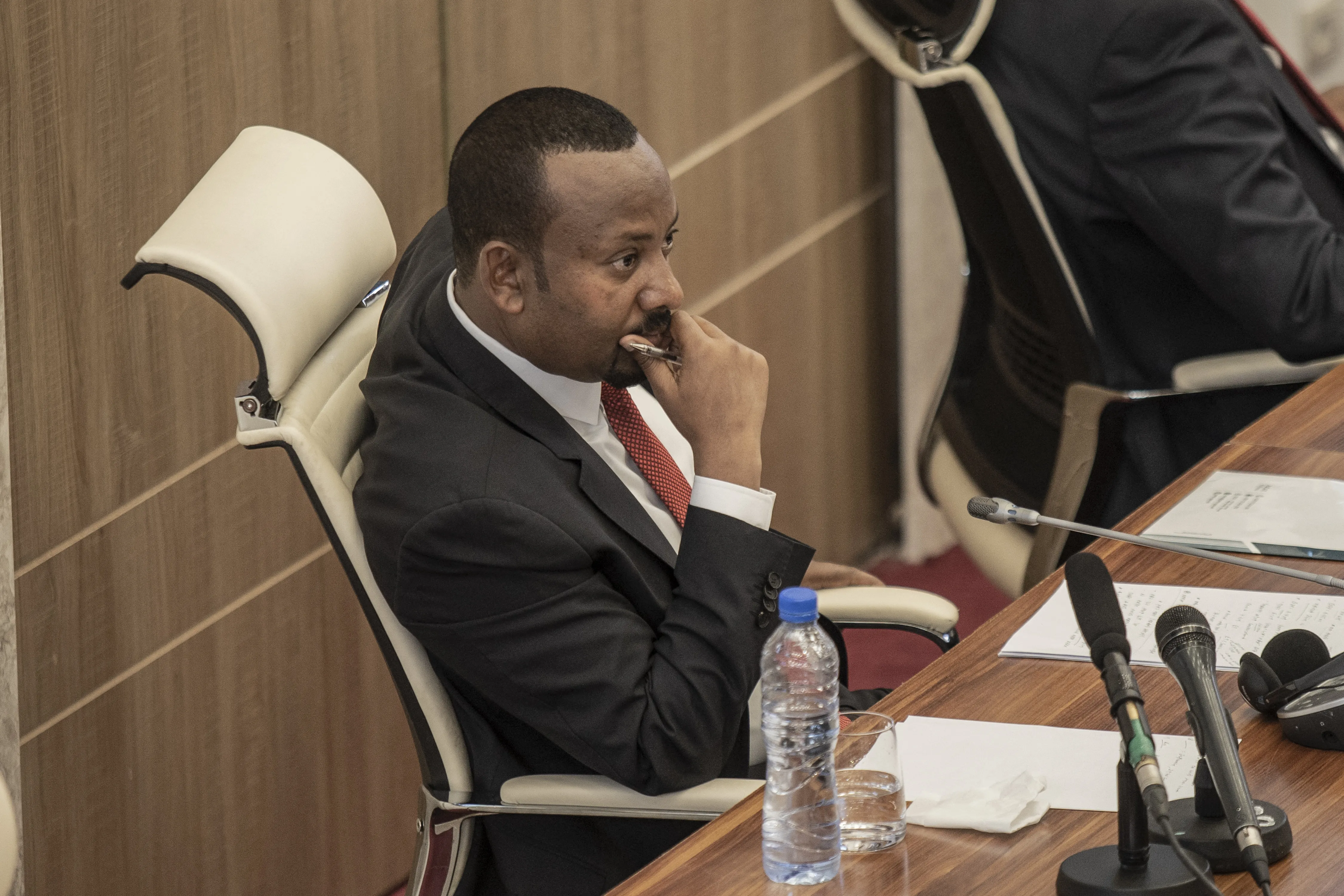Ethiopia’s economy is in a perilous state.
Since the onset of the coronavirus pandemic in early 2020, multiple factors have converged to weaken the East African economy. The pandemic weighed on Ethiopia’s exports and significantly reduced remittances – a World Bank report estimates that remittances to Sub-Saharan Africa fell by 9% in 2020 and 6% in 2021.
Ethiopia’s civil war, which began in November 2020, destroyed swathes of factories and industry in the Tigray region and cost Ethiopia approximately $20m in monthly export revenues. The war in Ukraine has disrupted supply chains and food supplies across the region, leading to rapidly rising prices for essential goods. Inflation in Ethiopia is currently running at over 30%.
While the country faces economic challenges from multiple angles, the drop in international trade has prompted particular concern.
Ethiopia’s widening current account deficit, sparked largely by the conflict in Tigray, has contributed to the serious problem of dwindling foreign exchange reserves.
In turn, the country’s lack of US dollars is making it more challenging for the government to service its dollar-denominated debt. As a result, in September last year, the National Bank of Ethiopia, the country’s central bank, announced several measures intended to improve the bank’s access to dollars.
The National Bank banned the use of foreign currency in local transactions, while reducing the number of days that a returning resident can keep foreign cash from ninety to thirty days. The Bank also relaxed restrictions on how much foreign currency can be brought into the country.
Nationals can now bring up to $4,000 into Ethiopia without declaring the money to customs officials, up from $1,000. The amount non-Ethiopians can bring to the country with no need to disclose it has more than tripled from $3,000 to $10,000.
Despite these moves from the central bank, there is a growing sense in Ethiopia that the country will soon be in need of a bailout from the International Monetary Fund (IMF).
The economic downturn, accompanied by the serious foreign reserves situation, means there is now a significant risk that Ethiopia will default on its sovereign debt. Hailemelekot Berhan, a capital markets analyst based in Addis Ababa, tells African Business that “it’s a really tough time for Ethiopia […] the government’s in trouble, the debts are piling up.”
Indeed, at the start of January this year, Fitch Ratings downgraded Ethiopia to a CCC- credit rating.
The agency noted that this “reflects the lack of identified external financing necessary to meet substantial external financing gaps, along with a material decline in Ethiopia’s external liquidity”.
While suggesting that the November 2022 peace deal in Tigray could boost the medium-term outlook, Fitch also identified “the significant risk of a default event”.
Any potential IMF package would be very likely to involve a devaluation of the Ethiopian birr (ETB).
Mirkarim Yakubov, chief financial officer at 54 Capital, an Africa-focused asset management firm based in Addis Ababa, argues that “when the IMF comes up with a bailout package, they always ask for devaluation.”
This was certainly the case when the IMF agreed a $3bn support package with Egypt in December last year.
This bailout included a “permanent shift to a flexible exchange rate regime,” which, since its implementation, has seen the Egyptian pound fall to record lows against the dollar. Could a similar fate be in store for the birr?
One of the reasons the IMF usually insists on a currency devaluation and a free-floating exchange rate is that a cheaper currency can help make a market more attractive to foreign investors.
A weaker birr would make Ethiopian assets, commodities, and exports cheaper in dollar terms – and could therefore make Ethiopia a more competitive market in the Horn of Africa and beyond.
Yakubov notes that Ethiopia has devalued its currency before, with some encouraging results. “In October 2017, the government devalued the currency by about 15% to boost exports,” he says, “which did help a little bit to boost the economy through export revenue. Since then, the government has been devaluing the birr more slowly.”
Given this, Yakubov is of the opinion that a weaker birr would form an important part of attempts to improve “the attractiveness of the economy” and attract greater sums of foreign direct investment.
He says that “the investment climate in Ethiopia has generally improved” in recent years, thanks to Abiy Ahmed’s decision to privatise telecommunications and work towards liberalised financial markets. IMF-led “structural reforms,” Yakubov tells African Business, could be the next step towards a “more open financial sector and more open foreign exchange”.
However, such moves would not come without risks. For one, a weaker Ethiopian birr could contribute to even higher inflation, by making imports more expensive at a time when the country is posting substantial trade deficits – one of which approached $4 billion in the second quarter of 2022.
Hailemelekot is concerned that a currency devaluation could prompt “spiralling inflation” and drag down living standards.
While Yakubov believes that “inflation is already at the highest levels,” and therefore a currency devaluation would not increase “as drastically as might be expected,” Hailemelekot argues that Ethiopians need immediate action to prop up the country’s ailing economy.
“If you look at the overall condition of the economy, it’s in a really bad shape, because of the war, coronavirus, and everything else,” Hailemelekot says. “The economy’s suffering and the government needs an economic reform programme that immediately deals with the current problems.”
While it would make Ethiopian assets cheaper on international markets, it is unclear whether a currency devaluation would in itself be enough to attract more foreign investors. William Phelps, investment manager at Lagos-based venture capital firm Adaverse, believes that much more profound and wide-ranging economic reform is needed in Ethiopia.
“Whilst a devalued birr presents a number of opportunities, Ethiopia’s underlying issues with respect to economic infrastructure and fiscal governance threaten to deter investors unwilling to take risks on both longer and shorter-term infrastructures,” Phelps says.
“Without a clearly defined path to economic recovery, it is difficult to see Ethiopia attracting international funds as quickly as other countries in the region.”
There are no easy answers for Ethiopia as it seeks to find a way through its very challenging economic situation.
After a period of war and instability, there is clearly a need to attract foreign investors to help rebuild a battered economy. Most accept that liberalising the economy and financial markets – including foreign exchange markets – will need to play a role in this.
The risk is that, at least in the short term, these measures make the situation even worse for citizens who have already had to face rising prices and a serious squeeze on living standards. As the spectre of an IMF bailout looms, Ethiopia’s politicians and bankers will have to hope they can find a solution.
Want to continue reading? Subscribe today.
You've read all your free articles for this month! Subscribe now to enjoy full access to our content.
Digital Monthly
£8.00 / month
Receive full unlimited access to our articles, opinions, podcasts and more.
Digital Yearly
£70.00 / year
Our best value offer - save £26 and gain access to all of our digital content for an entire year!
 Sign in with Google
Sign in with Google 



